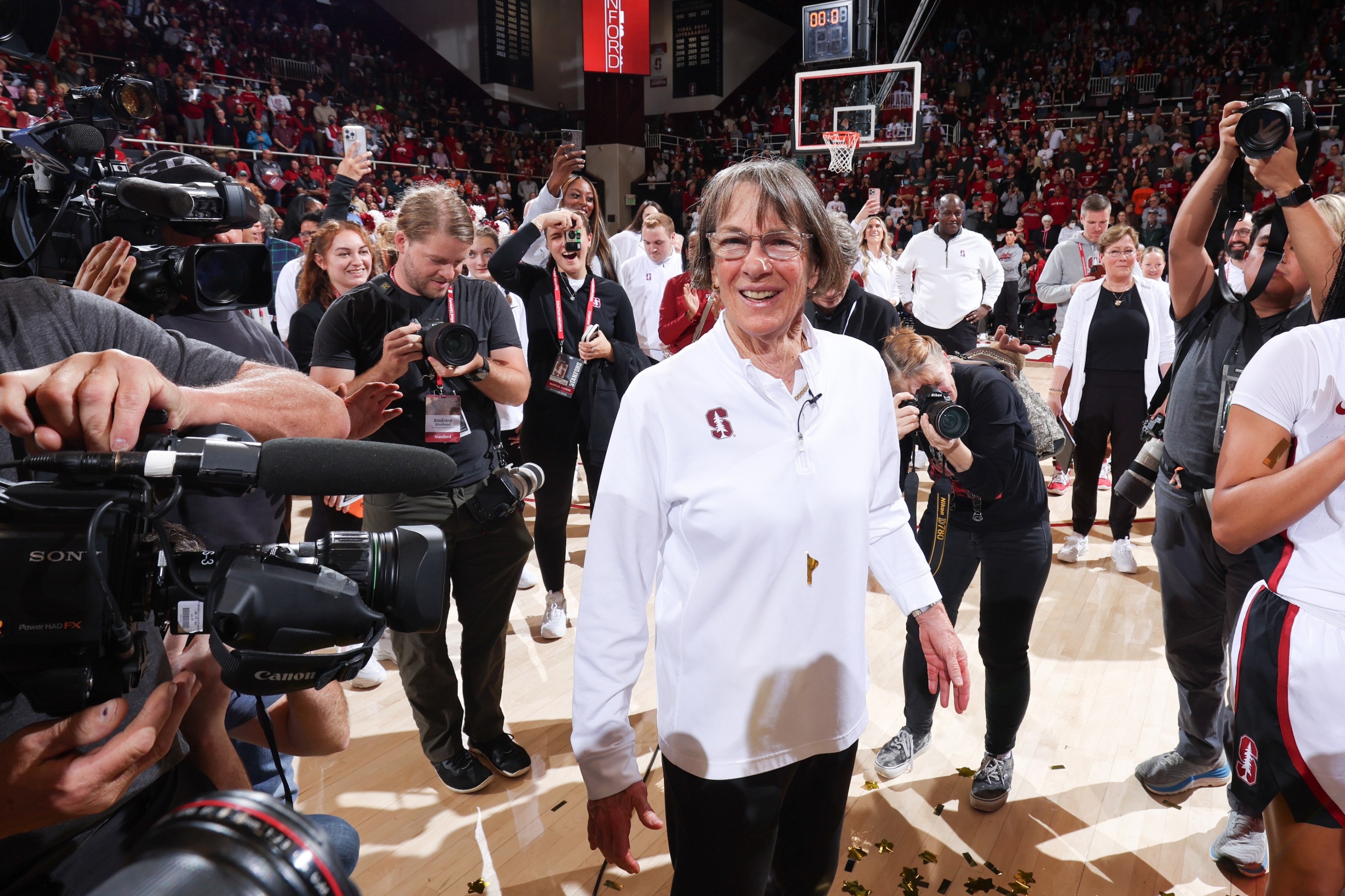This was the only way Tara VanDerveer was ever leaving her job at Stanford—out of the blue, no advance notice, just a call to the office saying, "I'm not coming in tomorrow, or any of the days after that. Announce it any way you want."
And like that, the third-longest-serving coach in college basketball (behind Oakland's Greg Kampe and Connecticut's Geno Auriemma) just dropped her mic without speaking a word into it on Tuesday. Indeed, only that terse announcement from her employer and a hastily updated Wikipedia biography told us that after 45 years—two at Idaho, five at Ohio State, 38 at Stanford, and one sabbatical with the U.S. Olympic team—VanDerveer decided that she had some pressing fishing to do. All of which is so her in so many ways—at the moment the sport is enjoying its belated but measurable commercial renaissance, VanDerveer decided to go all slippers and sweats.
Or, just as possible, she decided that she wasn't suddenly going to fall in love with making Stanford the best women's basketball program in the Atlantic Coast Conference. VanDerveer is 70, and it may be that 10 trips across the continent to re-establish her bonafides in the southeastern corner of the country, which has its own GOAT in Dawn Staley and is a long way away besides, seems like it might be a quixotic pursuit. VanDerveer has done all that can be done again and again, while never being drawn into spitefests with any of her contemporaries—Auriemma, Staley, Pat Summitt, Kim Mulkey, Muffet McGraw or any of the other giants of an industry America just learned about three weeks ago.
And she did it hours after Staley's South Carolina put a comprehensive whomping on America's sweetheart at 27 feet, Caitlin Clark, when the spotlights were where they rightly belonged. VanDerveer didn't retire yesterday to grab some attention—she retired to scoff at it. She wasn't bigger than her team's games, or even its hijinks, before or after she became the winningest coach in college basketball history. She made good players great and great players pros, and while she could be coach-willful when she needed to be, she was never preoccupied with making sure she knew where all the camera angles would catch her best. She had a difficult job and did it brilliantly and seemed happy to leave it at that; she had the same haircut for maybe forever, and always dressed in what might best be called janitor-casual.
She also collected players and made them into teams, and steered them across seasons that wound up commemorated on championship banners. VanDerveer's teams made the NCAA Tournament for each of her last 35 seasons, missing only the year she coached the U.S. National Team to Olympic Gold in 1996—she did it again in 2020—and the season when COVID ran the table.
So when VanDerveer chucked it in last night with a press release that extolled none of her virtues save her general GOATistry, it was very much in character. To the end, she did the one thing that nobody knows how to do any more, or would employ if they did—she let the résumé stand on its own, and left the GOAT talk to the side. In a job that almost demands that winners toot their own horns, VanDerveer plays the piano, which is much harder to lift.






